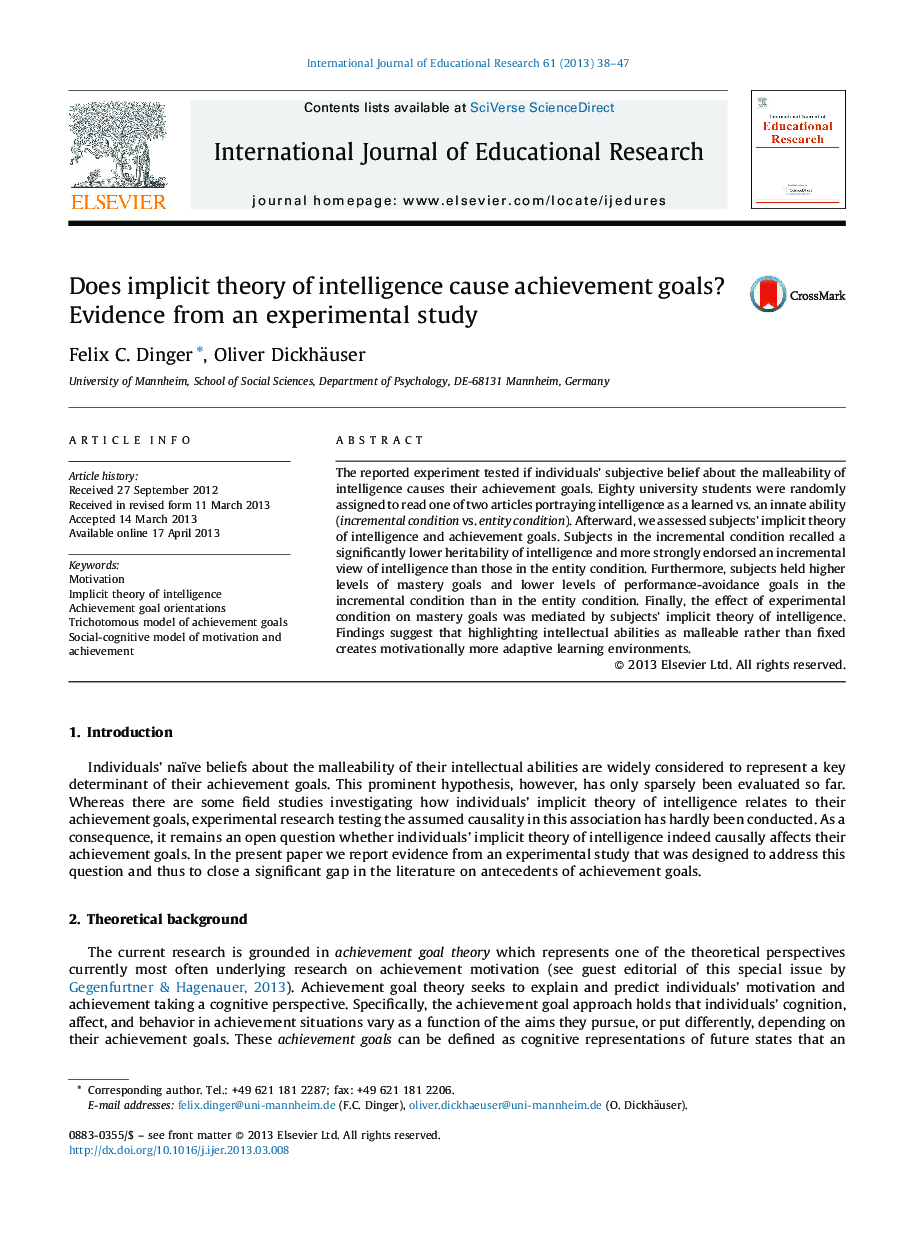| Article ID | Journal | Published Year | Pages | File Type |
|---|---|---|---|---|
| 356965 | International Journal of Educational Research | 2013 | 10 Pages |
•We experimentally manipulated implicit theory about the malleability of intelligence.•Incremental relative to entity condition determined higher mastery goals.•Incremental relative to entity condition determined lower performance-avoidance goals.•Effects on mastery goals were mediated by implicit theory of intelligence.•Results are discussed with regard to theorizing on antecedents of achievement goals.
The reported experiment tested if individuals’ subjective belief about the malleability of intelligence causes their achievement goals. Eighty university students were randomly assigned to read one of two articles portraying intelligence as a learned vs. an innate ability (incremental condition vs. entity condition). Afterward, we assessed subjects’ implicit theory of intelligence and achievement goals. Subjects in the incremental condition recalled a significantly lower heritability of intelligence and more strongly endorsed an incremental view of intelligence than those in the entity condition. Furthermore, subjects held higher levels of mastery goals and lower levels of performance-avoidance goals in the incremental condition than in the entity condition. Finally, the effect of experimental condition on mastery goals was mediated by subjects’ implicit theory of intelligence. Findings suggest that highlighting intellectual abilities as malleable rather than fixed creates motivationally more adaptive learning environments.
